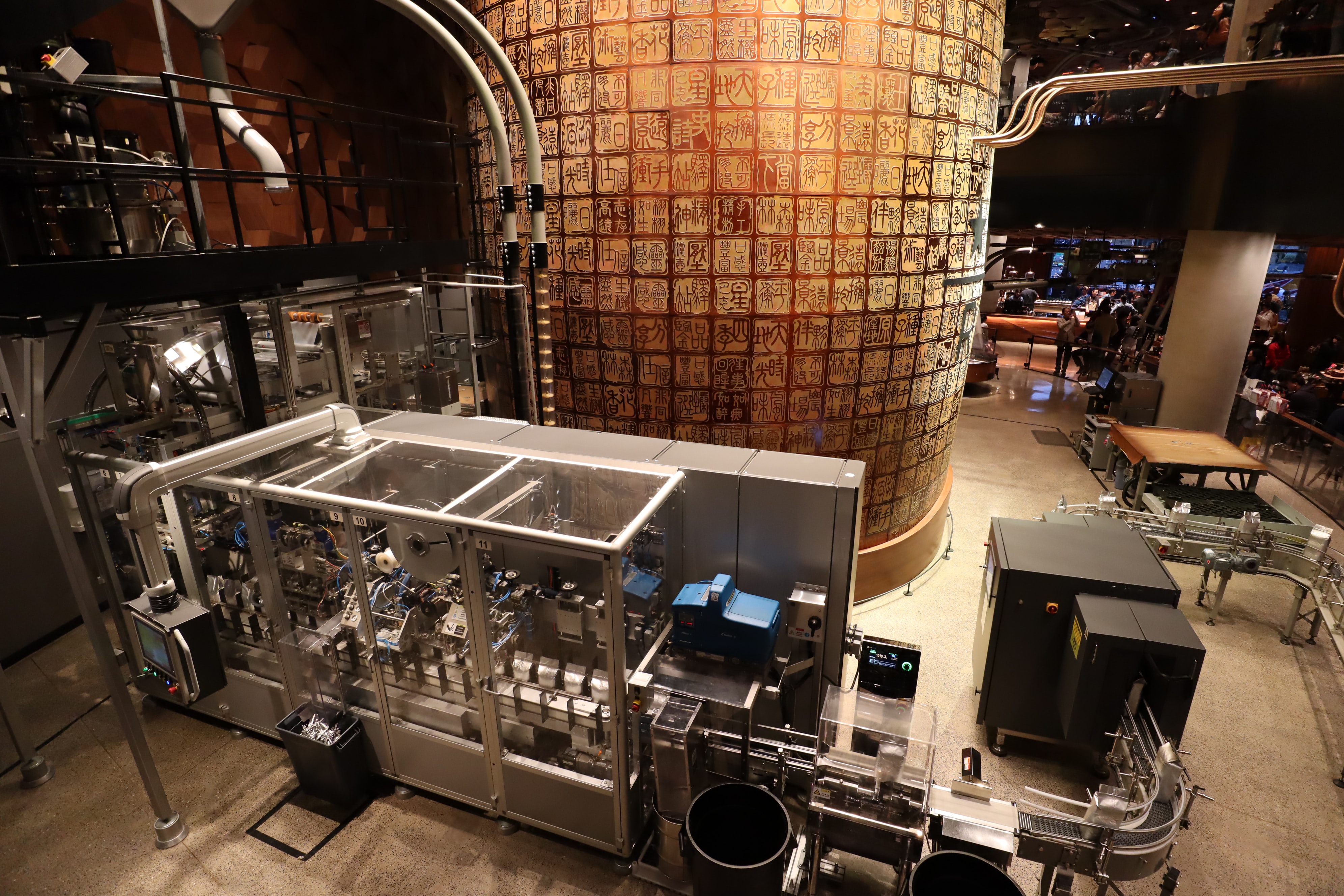Identifying specialists within the Industrial Internet of Things (IIoT).
Supply chain issues persist within the global manufacturing industry. Although nimble companies have found ways to navigate the issues brought about by COVID19, experts still anticipate concerns continuing through 2022, caused by the lingering effects of the pandemic and other global events.

One of the most pervasive issues stems from the reality that domestic manufacturing relies heavily on components made in other countries. While efforts are being made to mend this, in particular attempts to re-instate the component manufacturing industry in the US, it’s clear that this industry will reemerge in a different way with a focus on mechanization and automation.
The foundation of a long term strategy to mitigate these problems in the future will involve leveraging the Industrial Internet of Things (IIoT), which presents a groundbreaking opportunity for data capture at each step of a manufacturing process.
This extensive study by Inmarsat indicates that many manufacturing companies are either already using or anticipate using IIoT to enhance their productivity. A smart factory can track all elements of the production chain and communicate information and even anticipations within the network.

In addition to valuably capturing data, a smart-automation chain can perform pre-emptive actions based on the needs of the incoming workload; for example submitting a work-order for components required on the production line, utilizing a company’s secure industrial WLAN.
Unlike residential (or office) WiFi, an industrial system transfers small amounts of data, and as such requires a small amount of power but must remain uninterrupted. Knowledge of the specificities of these systems is essential to optimize an efficient order-to-customer pipeline.
Because of innovations like re-programmable robots and even rent-a-bot companies emerging, there is much less danger of expensive built-in obsolescence and more opportunity for network, automation and programming specialists within manufacturing companies.

Companies searching for highly-skilled workers to ease their supply chain disruptions want to make sure that potential employees actually have the skills to excel without significant additional training. That’s why industry-standard certifications are important for supply chain workers. They provide employers with evidence that a worker has the knowledge and hands-on skills to work with today’s advanced technologies.
Industrytoday.com states that ‘new developments in automation are allowing small manufacturers to meet demand while helping with American competitiveness’. Today’s workers need more advanced technical and technological skills than ever before. Unfortunately, there aren’t enough workers with these skills to fill the many roles available today, creating what is known throughout industry as the “skills gap.” Modern businesses must ensure that their workers have up-to-date, relevant accredited skills. How can companies be sure that their employees are at the correct skill-level?
The Smart Automation Certification Alliance (SACA) focuses on connected-systems skills and leads the effort to certify students and workers who demonstrate the required knowledge and hands-on smart automation skills employers so desperately need. SACA professional development opportunities provide extensive training courses to equip teachers to promote Industry 4.0 certifications. These professional development opportunities are offered throughout the year at regional centers. Courses last 3-5 days each. Upon successful completion of each course, teachers will be certified in the process of examining students for a given credential and administrating a certification preparation course.
To learn more about Industry 4.0 certifications and how SACA can help both educational institutions and industry employers begin the task of bridging the Industry 4.0 skills gap, contact SACA for more information.
Header Photo by Denny Müller on Unsplash
- Published in News
Micro-Credentials Pave Micro-Pathways to Career Success
There are many new forms of advanced, “connected” technologies that characterize what’s commonly known as Industry 4.0. These technologies, as a group, also go by a variety of monikers, including Smart Factory and the Industrial Internet of Things (IIoT).
Today’s workers need more advanced technical and technological skills than ever before. Unfortunately, there aren’t enough workers with these skills to fill the many roles available today, creating what is known throughout industry as the “skills gap.”
That’s why the Smart Automation Certification Alliance (SACA) partnered with a wide variety of educational institutions and industry leaders to develop a set of Industry 4.0 certifications for a range of industries. These credentials were developed in conjunction with industry to ensure that they represent the job-ready skills that employers desperately need today.
SACA designed many of its certifications in a modular format, so that workers could earn stackable micro-credentials that will enable them to start a successful career before earning a full certification. A recent report by an educational nonprofit organization underscores the importance micro-credentials can play in creating micro-pathways to career success.
In this article, we will take a closer look at examples of educational institutions that are partnering with local industries to create micro-pathways based upon micro-credentials to put workers on a fast track to a new career.
What are Micro-Pathways?
The Education Design Lab (the “Lab”), “a national nonprofit that co-designs, prototypes, and tests education-to-workforce models” recently published a groundbreaking report on its latest efforts: Design Insights Brief: Community College Growth Engine Fund Micro-pathways: A Gateway to Community College Transformation (the “Brief”).
The Brief describes the launch of the “Community College Growth Engine Fund (CCGEF or the Fund, for short) – a design accelerator to work with community colleges and systems across the country to co-create a new class of credentials: micro-pathways. Co-designed with learners and employers, micro-pathways are defined as two or more stackable credentials, including a 21st century skill micro-credential, that are flexibly delivered to be achieved within less than a year and result in a job at or above the local median wage.”
The first CCGEF group of community colleges/systems included SACA members Ivy Tech Community College (Indiana) and Pima Community College (Arizona), as well as Seattle Colleges, the City University of New York, Prince George’s Community College, and Austin Community College.
Together with the Lab, these organizations developed 30 new micro-pathways over the past two years across a variety of industries. For example, relevant micro-pathway occupations targeted included the following: industrial engineering mechanic, electrician, HVAC technician, cloud associate, electro-mechanical manufacturing technician, cybersecurity professional, and entry-level data analyst.
Micro-Pathways Satisfy Both Learner and Employer Needs
During the development of these new micro-pathways, educational institutions and industry leaders gained valuable insights into how micro-credentials and targeted training satisfy both learner and employer needs. For example, they learned that students “need practical pathways with a clear return on investment (ROI).” Helping learners to understand the value they gain compared to their investment of time and money is essential.
Learners also “need flexible micro-pathways that meet them where they are in their journey.” In the wake of an ongoing global pandemic, it’s more important than ever to offer micro-credentials that offer “flexibility in format and timing as well as recognition of their life and work experiences.”
Importantly, they learned that students also “want and need deeper and more extensive work-based learning.” Starting and building relationships with employers via immersive experiences can put students on the fast track to career success. It also helps employers who “need learners to have work-based learning experiences,” such as internships, part-time jobs, school projects, or even volunteer projects.
Working closely with educational institutions also taught employers that “the micro-pathway co-design process [is] transformative to deepening their relationships with community colleges.” Not only does the process result in the creation of a pipeline of new skilled talent, but it also allows them “to provide input on an ongoing basis” as their needs evolve and change.
Finally, the process revealed that employers “strongly value training and credentialing for 21st century skills like communication, critical thinking and intercultural fluency.” Even as advanced technologies transform the workplace, these critical soft skills remain incredibly important to employers.
SACA Offers a Wide Variety of Micro-Credentials to Facilitate Micro-Pathways
How can your educational organization develop its own micro-pathways to student career success? The process begins by forging partnerships with local industries to determine the types of jobs they need to fill and what skills those roles require.
With a solid industry-education partnership forming the foundation of your effort to create new micro-pathways for your students, you can then choose the right micro-credentials to validate the skills employers are seeking. Fortunately, you don’t have to recreate the wheel.
SACA offers a wide variety of micro-credentials to facilitate micro-pathways to successful new careers for students. For example, here are just a few of the subject matter areas in which SACA offers micro-credentials: electrical, motor control, programmable controllers, mechanical, pneumatics, hydraulics, automation, Industry 4.0 technologies, robotics, electronic sensors, smart factory operations, process control, Ethernet communications, networking, data analytics, and predictive maintenance.
The Smart Automation Certification Alliance (SACA) sits at the forefront of the effort to certify students and workers who demonstrate the required knowledge and hands-on smart automation skills employers so desperately need. To learn more about Industry 4.0 certifications and how SACA can help both educational institutions and industry employers begin the task of bridging the Industry 4.0 skills gap, contact SACA for more information.
- Published in News




